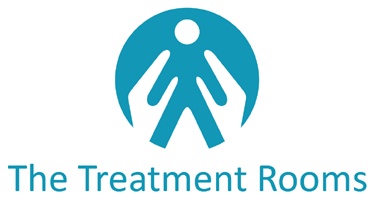Dear Clients,
As you know, due to the coronavirus pandemic, I am unable to provide treatments as dictated by the Government and my governing bodies. I am hoping that restrictions will ease in July. However, in order to keep us all as safe as possible and free of infection, there will be new procedures in place. I have yet to be given official guidance but the following gives some indication of how I will operate from home as safely as possible. If you have any comments or suggestions, please do feel free to contact me.
It is unlikely that I will be unable to treat those that fall into the vulnerable to coronavirus categories, which I have detailed below, as described by the NHS Guidelines.
People at high risk (clinically extremely vulnerable)
People at high risk from coronavirus include people who:
- have had an organ transplant
- are having chemotherapy or antibody treatment for cancer, including immunotherapy
- are having an intense course of radiotherapy (radical radiotherapy) for lung cancer
- are having targeted cancer treatments that can affect the immune system (such as protein kinase inhibitors or PARP inhibitors)
- have blood or bone marrow cancer (such as leukaemia, lymphoma or myeloma)
- have had a bone marrow or stem cell transplant in the past 6 months, or are still taking immunosuppressant medicine
- have been told by a doctor they you have a severe lung condition (such as cystic fibrosis, severe asthma or severe COPD)
- have a condition that means they have a very high risk of getting infections (such as SCID or sickle cell)
- are taking medicine that makes them much more likely to get infections (such as high doses of steroids)
- have a serious heart condition and are pregnant
People at moderate risk (clinically vulnerable)
People at moderate risk from coronavirus include people who:
- are 70 or older
- are pregnant
- have a lung condition that’s not severe (such as asthma, COPD, emphysema or bronchitis)
- have heart disease (such as heart failure)
- have diabetes
- have chronic kidney disease
- have liver disease (such as hepatitis)
- have a condition affecting the brain or nerves (such as Parkinson’s disease, motor neurone disease, multiple sclerosis or cerebral palsy)
- have a condition that means they have a high risk of getting infections
- are taking medicine that can affect the immune system (such as low doses of steroids)
- are very obese (a BMI of 40 or above)
The following indicates some of the procedures and expectations of myself as your Soft Tissue Therapist and you, the client.
Client
- Please supply own facemask or wear one supplied throughout your treatment.
- Please wait in your vehicle until I come out and get you to ensure there are no other visitors nearby and to minimise surfaces contact such as door handles.
- Please bring as little amount of items, e.g phone, purse or small bag to minimise foreign items in the clinic.
- Will be encouraged to pay by card or BACs
- Please do not wear gloves, you will be asked to wash your hands on entering the clinic.
- Please bring your own water
- To inform me of any Covid 19 symptoms you might have in the time after our treatment.
- To either use hand sanitiser or wash hands prior to leaving the clinic
Soft Tissue Therapist
- Will check and record my temperature daily
- Will contact each client the day of the appointment to ensure that they are feeling well.
- Will gain verbal consent to initial treatment post return to practise prior to appointment regardless of whether a returning client.
- Will deep clean daily and document this.
- Will not leave the clinic inbetween appointments to ensure no cross infection. Internal door will be locked at all times with only access for myself.
- Will wear clean, freshly laundered uniform for each block of treatment sessions.
- Will wash any clinic laundry, including uniform, separately and at 60degrees.
- Will leave 30 mins between appts in order to clean and wipe down all surfaces and objects (such as phone, pen, card machine etc) before next client.
- Will wash hands before treatments and after treatments and after cleaning.
- Will wear disposable apron to protect clothing.
- Will use the NHS Contact Tracer app
- Risk Assessment and COSHH assessment available on request
- Will inform clients of any Covid 19 symptoms I might develop in the time after our treatment.






